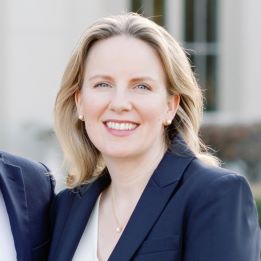

Senior vice president and general counsel | energyRe




Cynthia Martinez
Senior vice president and general counsel | energyRe
Legal team size: Eight
Major legal advisers/ external counsel:
Latham, Gibson Dunn, Norton Rose
How do you approach managing legal aspects during periods of instability or crises, and how does your legal strategy align with the broader business strategy to ensure the organisation’s resilience? /strong>
Working in renewable energy means navigating uncertainty. My approach is based on proactive risk management and aligning our legal strategy with the broader business objectives. We focus on pursuing opportunities and negotiating contracts that both support our growth ambitions and mitigate foreseeable risks.
In your opinion, what are the main trends affecting your work now?
Planning for and adapting to shifting political, economic and regulatory landscapes affecting renewable energy are prominent themes of our work.
Politically, anticipating changes which may occur in a new administration and “future proofing” our agreements, to the extent possible, has been a focus for our team.
Economically, demand for renewable energy is surging due to data center development to power artificial intelligence, electrification of transportation and other aspects of the economy, and corporations seeking to achieve net zero emissions. On the flip side, supply chain variability, inflation and market volatility are economic risks that can negatively impact our business which the legal team seeks to mitigate.
From a regulatory standpoint, we focus on mitigating change in law risk, such as changes to incentives, environmental and permitting regulations, and trade compliance (e.g., tariffs).
What strategic priorities are guiding your legal team into 2025?
A big priority for us in 2025 is working more efficiently by implementing new technology, including artificial intelligence.